From the Far North to War-Torn Ukraine
Monday, March 4, 2024 / Online
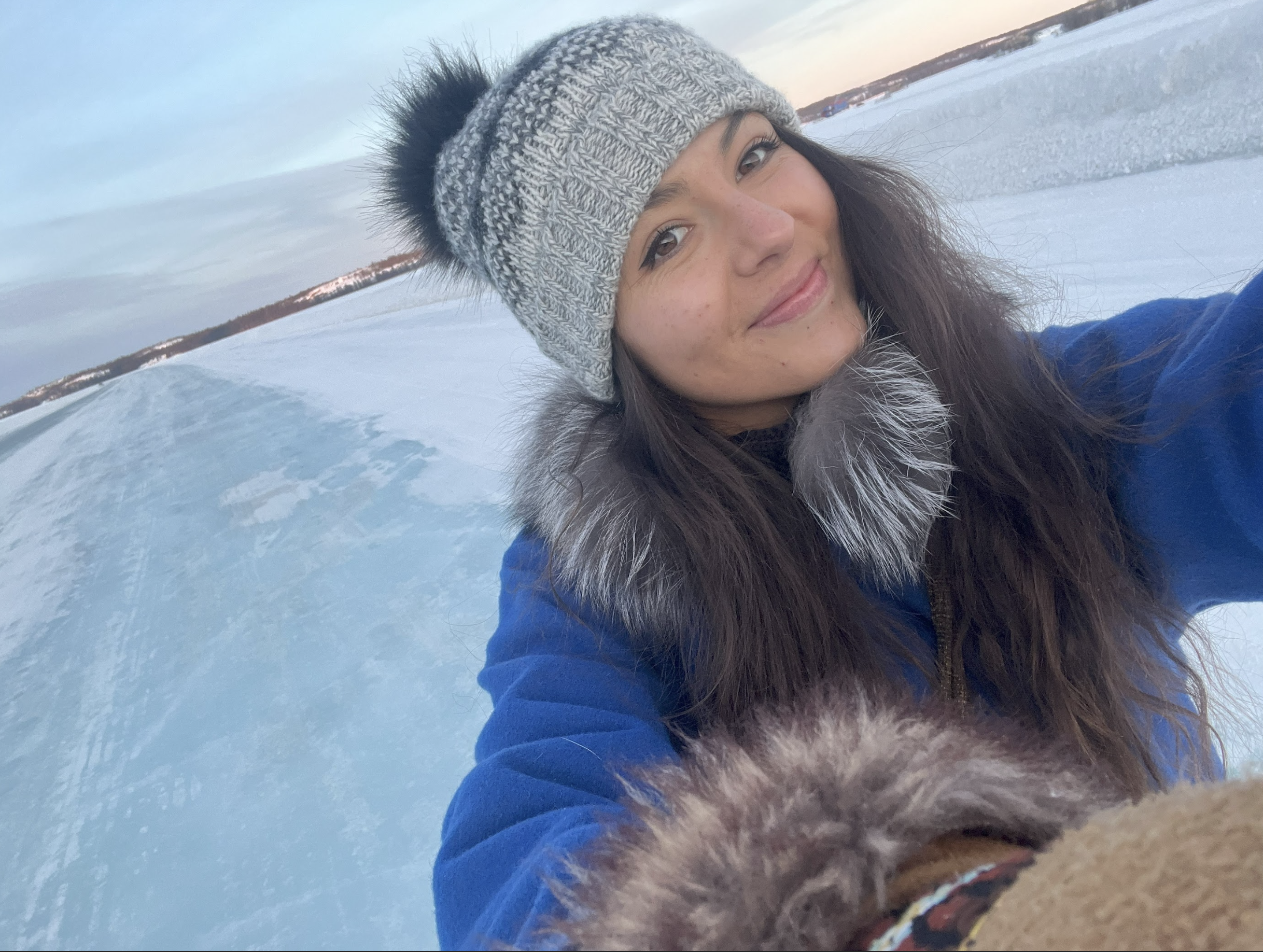
“Growing up, I knew many First Nations people who didn’t have access to basic health care,” Michaela Parenteau says, “and these inequities inspired me to study nursing at Lakehead.”
Michaela—who’s from Wabigoon Lake Ojibway Nation near Dryden, Ontario—began working as a registered nurse (RN) in northern fly-in communities not long after she earned a Bachelor of Science in Nursing in 2018. She was excited to be recruited by Indigenous Services Canada through a new mentorship program.
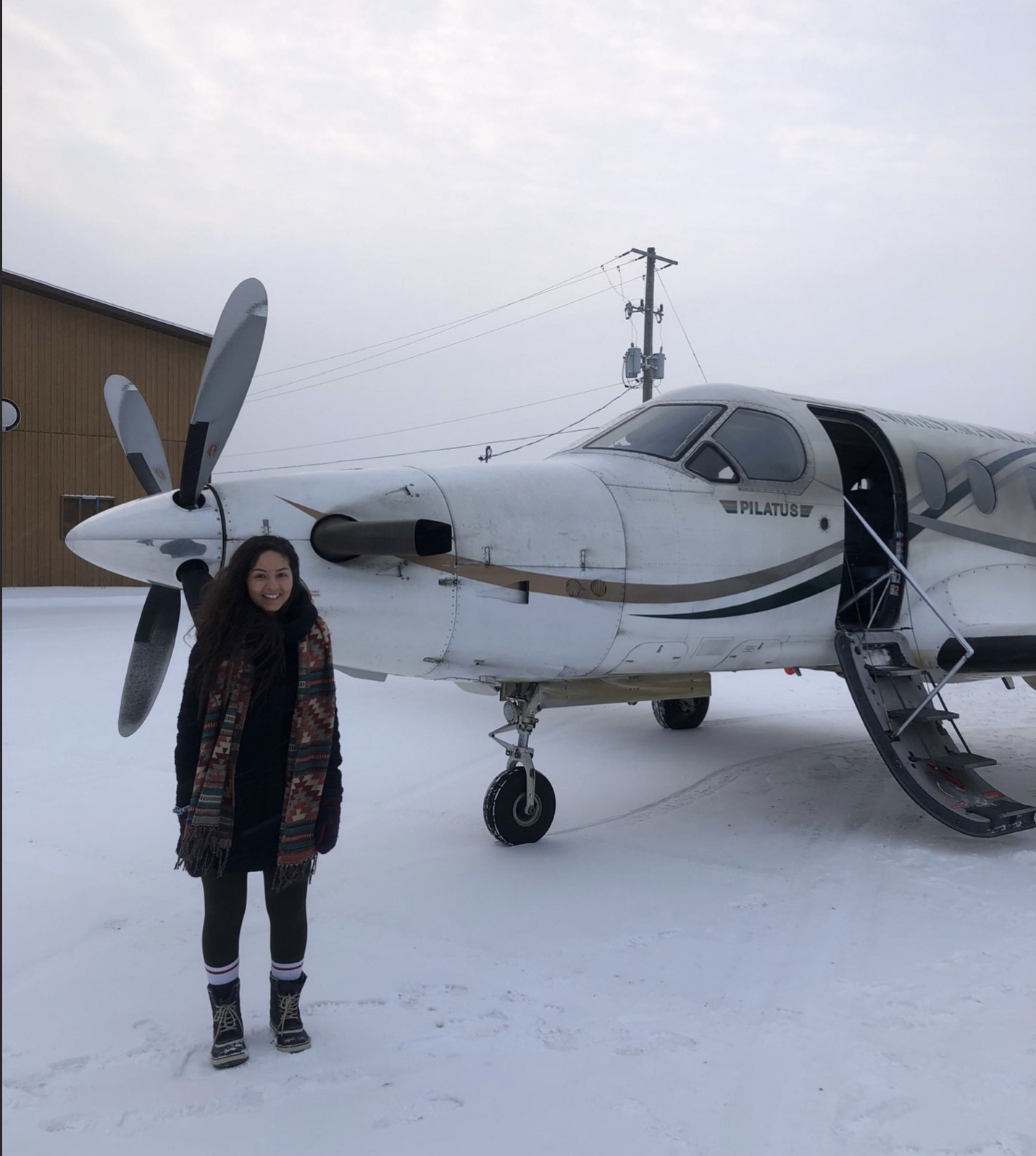
Pictured left: Michaela has a much more adventurous commute to work than most people.
“Since I was an undergrad,” Michaela says, “I’ve felt a calling to go to northern nursing stations to provide primary health care services to First Nations people living on reserve.”
She worked briefly in Wabaseemoong First Nation, a drive-in community outside of Kenora as well as the fly-in community of Poplar Hill near the Manitoba border.
“Poplar Hill holds such a big part of my heart because it’s where I learned everything that I know,” Michaela says.
She soon built on her knowledge by enrolling in Lakehead’s Master of Public Heath (MPH) program and specializing in Northern and Indigenous Health. As part of their degree requirements, MPH students complete a practicum placement, and Michaela chose to do hers with the Northern Birthwork Collective in Yellowknife in the Northwest Territories.
“The Northern Birthwork Collective is a not-for-profit organization that advocates for reproductive justice for all birthing people,” Michaela says. “Being there was an amazing experience.”
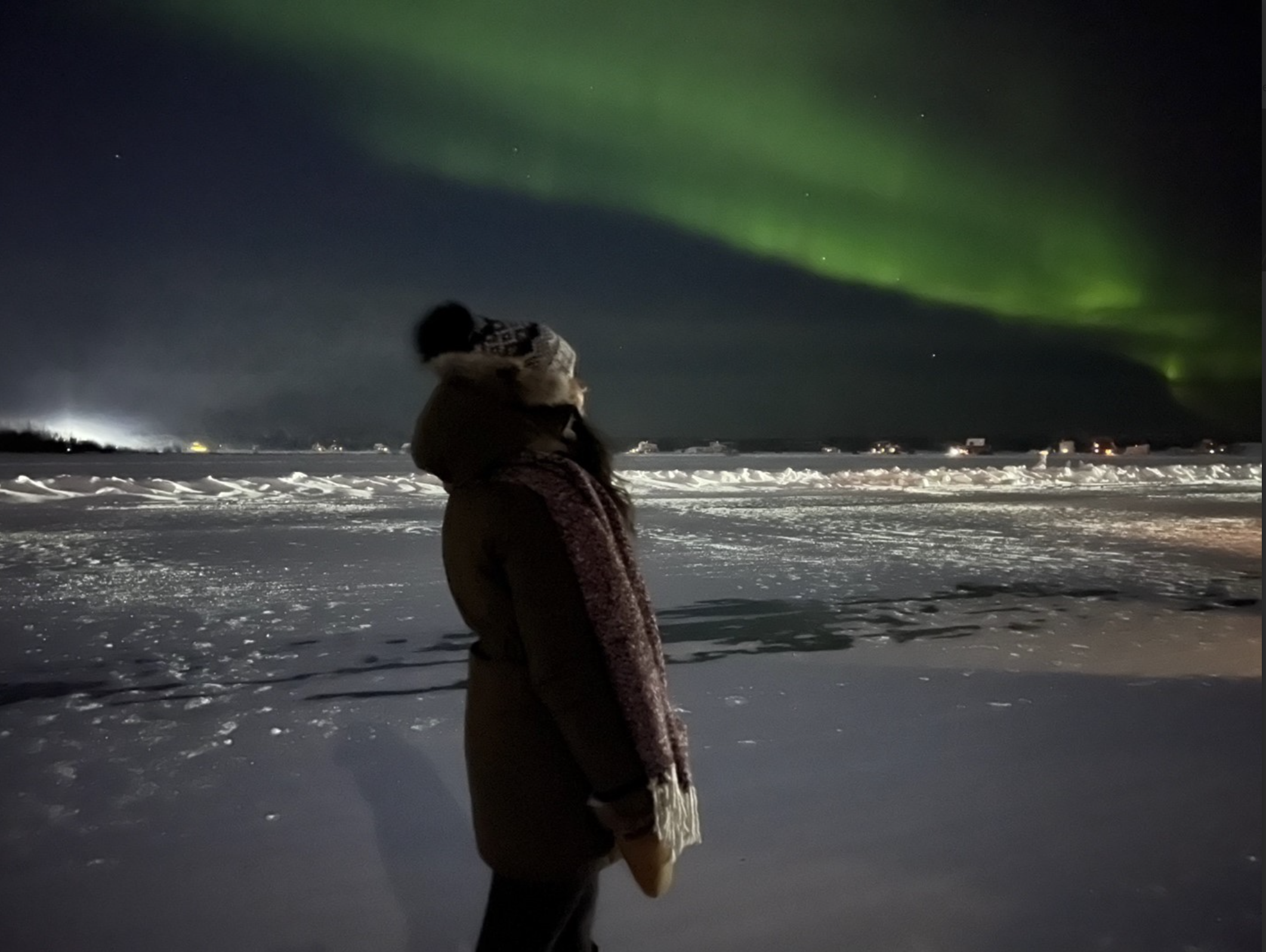
Pictured right: When Michaela (BScN’18/MPH’22/Cert NursP’23) arrived in Yellowknife to do her Master of Public Health practicum, she had to quickly adapt to severe winter temperatures. “It was -50C while I was there, but that didn’t stop me from going out to watch the spectacular shows that the Northern Lights put on every night.”
The organization was a strong advocate for birthing people, especially during the closing of Yellowknife’s only obstetrical unit.
“The closure forced all pregnant people to be evacuated to a larger centre, usually Edmonton, for the duration of their third trimester and the birth of their child,” Michaela explains. “Historically, First Nations women in northern Indigenous communities have been evacuated for births, but the Yellowknife closure created a lot of media headlines because it affected non-Indigenous women including government workers, military personnel, and teachers.”
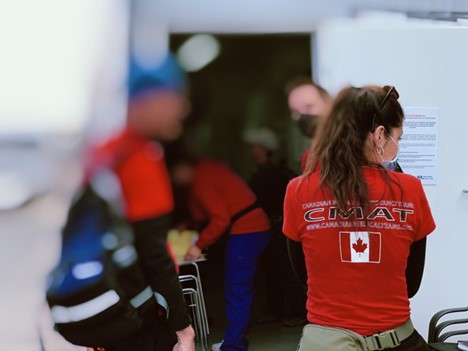
Pictured left: In April 2022, Michaela became part of Team Foxtrot—which consisted of interpreters, registered nurses, a nurse practitioner, and two physicians—and provided care for victims of the war.
Michaela was still in Yellowknife when she responded to an email seeking volunteers to go to Ukraine with the Canadian Medical Assistance Team after Russia invaded the country in 2022.
“I didn’t want to be a bystander who just watched the war on the news,” Michaela says. “What was happening in Ukraine reminded me of the colonization process that Indigenous Peoples went through.”
She was accepted onto Team Foxtrot, which was deployed at a crossing point on the Poland-Ukraine border where Michaela saw thousands of women and children trying to escape the devastation of the war.
“Watching families say goodbye to each other as husbands, fathers, and brothers stayed behind to fight on the frontlines was heartbreaking,” she says.
The Foxtrot team returned to Poland every night. Every day, if it was safe, they travelled to Ukraine to staff a small primary care clinic in a refurbished train car. Foxtrot also had a mobile clinic that travelled into Ukraine to provide primary care and medications and to treat infected wounds caused by explosions and armed conflicts.
“Mental health and PTSD-related needs were very common, too. People were suffering from grief, depression, anxiety, and insomnia.”
Michaela returned from Ukraine with a new resolve.
“My work overseas has carried over into the nurse that I am today and convinced me to become a nurse practitioner, as did my desire to provide better health care at northern nursing stations.
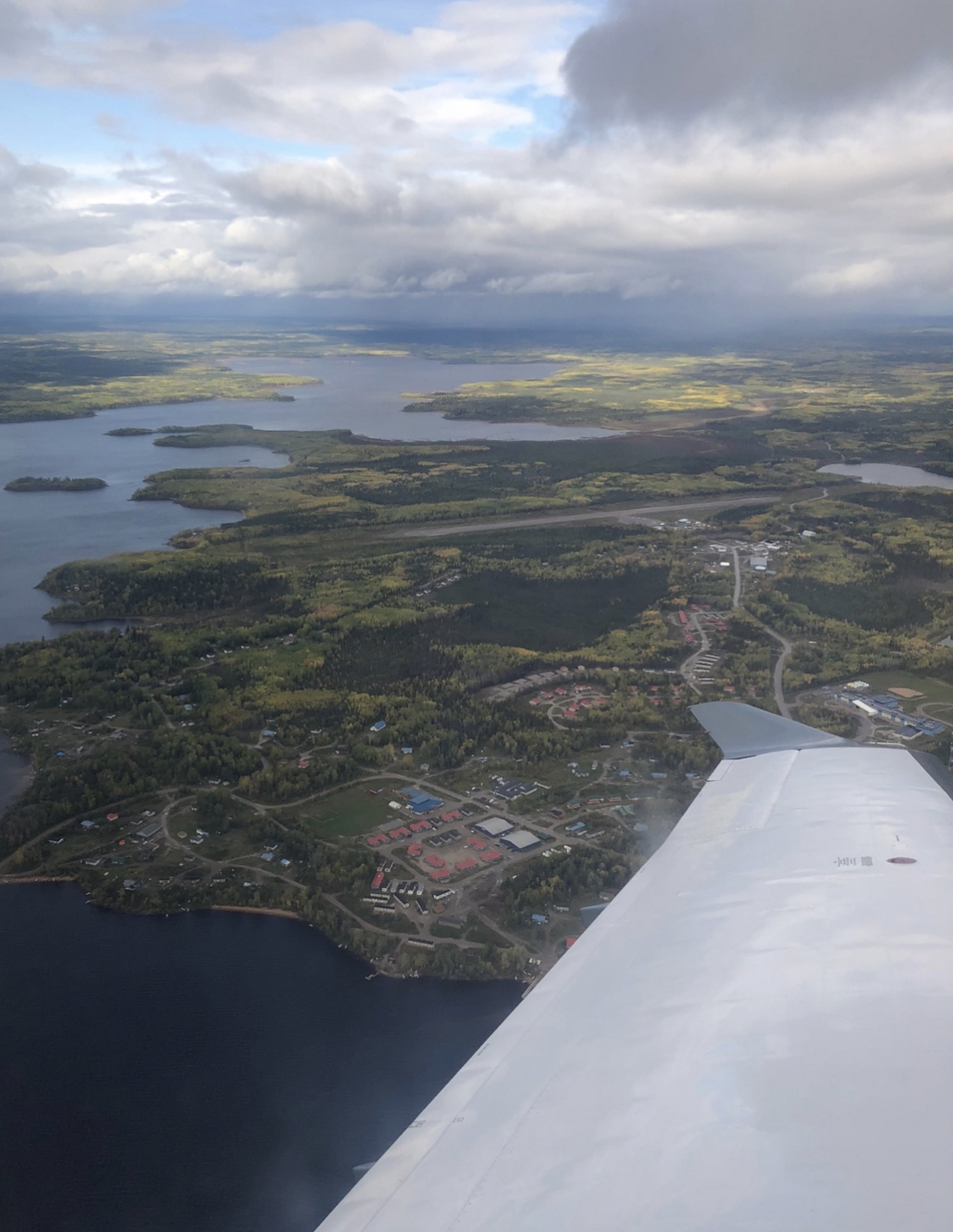
Pictured right: Michaela is a nurse practitioner in Pikangikum where she works in two-week rotations. “Pikangikum is only accessible by plane or winter road so you’re either flying or taking the ice road,” Michaela says. When she’s not working, she is in her hometown of Wabigoon, Ontario, where she’s a volunteer firefighter.
Since receiving her nurse practitioner certification from Lakehead in 2023, Michaela has been able to increase her scope of practice.
“It’s allowed me to act independently and autonomously,” she says.
For the past three years, Michaela has been working in the community of Pikangikum First Nation where her compassion and skill as a health-care professional is a step towards creating greater access to care. She is also rostered with the Canadian Medical Assistance Team so that she can step up when other humanitarian crises occur.
“I’m forever bonded with the Foxtrot team,” she says, “we witnessed what most people thought we would never see in our lifetime.”
WATCH VIDEO: "Nurse Practitioner Michaela Parenteau."

